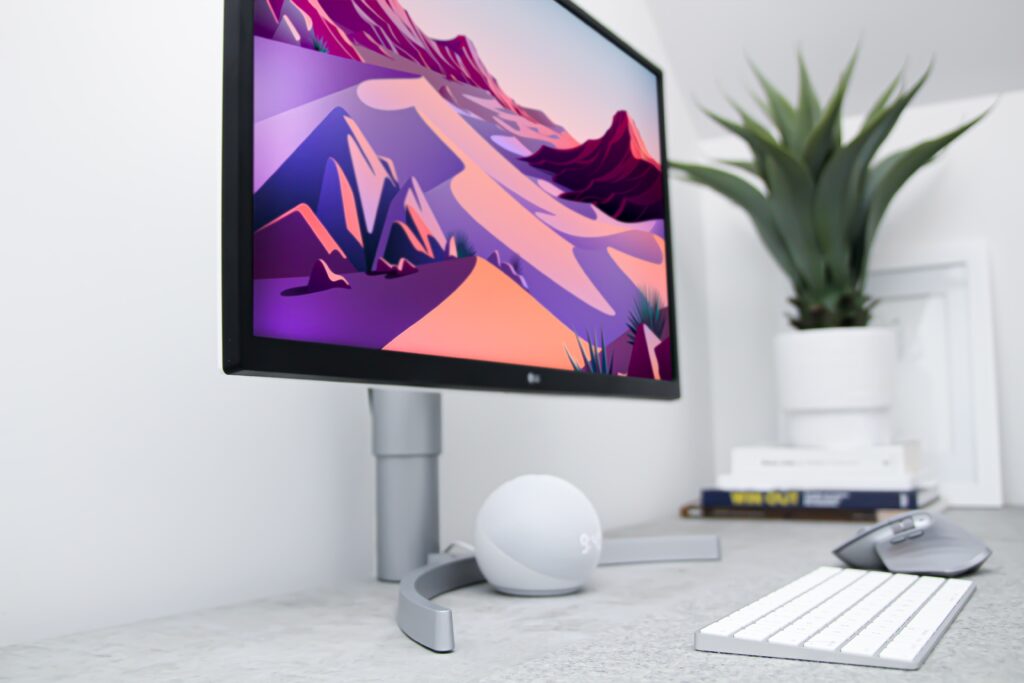South Korean: 2023 has been a year full of big news in the tech industry. One of the most highlighted technologies this year is undoubtedly artificial intelligence; machine training and big data sectors have seen exponential growth throughout 2023. Including OpenAI’s ChatGPT, we observed introductions of AI-operating language models built by tech giants, such as Meta’s Llama 2 and Google’s PaLM 2. Governments started to provide guidance and regulations on how to use these tools, and concerns about AI ethics grew over time. Besides AI-related developments, we also saw companies building wireless TVs and monitors and Apple allowing its Apple Watch users to control commands through pinches.
Tech companies in South Korea are also aware of such changes in the industry. In March, several well-established software builders like Naver and Kakao said that they are working on AI models in an attempt to compete with other global AI developers while asking for the government’s assistance. The administration also announced its plan to transform the governmental system based on digital platforms operated on AI as well as the Large Language Model (LLM) in September.
Approaching the end of 2023, South Korean companies are unveiling their New Year resolutions, inviting their employees and followers to get a glimpse of what to expect in 2024. In this article, 4i Magazine goes over these companies’ goals for 2024, understanding what kinds of tech trends there would be to look out for in the country.
CES2024: AI Hype Will Continue in Next Year
Some imminent tech trends in 2024 can be learned from the Consumer Electronics Show (CES), the biggest annual tech convention, taking place from 9 to 12 January in Las Vegas, Nevada. Titled “All On”, the event aims to find solutions for our various problems, from our everyday troubles to climate change, through a range of advanced technologies, with the focus on “AI”. Expecting more than 150,000 guests for the event, CES 2024 prepared an innovation award for the AI category for the first time in its history.
Out of 3,500 companies participating in the convention to showcase their products or services, 17 per cent are headquartered in South Korea. The participating companies include big techs like Samsung, LG, and SK. As for Eureka Park, where start-ups come together to exhibit, the number of South Korean companies was the second biggest of all nationalities, right behind the United States, according to the Consumer Technology Association.
Samsung will form an exhibition centred around SmartThings, an automation app for household appliances, at CES 2024. A day before the official starting date of the tech show, Samsung plans to hold a conference to introduce its AI strategy, “AI for All: Connectivity in the Age of AI”. Samsung said that the conglomerate’s Vice Chairman, Han Jong-hee, will be the keynote speaker to introduce the strategy. The details of the strategy are not yet made public.
South Korean tech 2024
LG Electronics’ main product for the showcase will be its best-selling OLED TV, followed by mobility services. The company will unveil a concept car with the concept of futuristic designs and an autonomous system dubbed “Alpha-able“. Its vehicle cybersecurity management system “Cockpit” platform, made in collaboration with cybersecurity company Cybellum, is slated for the first reveal at the convention in 2024. LG Innotek, an affiliate of the LG group, is also bringing mobility-related AI-powered products to CES 2024 this year.
Hyundai Motor Group is set to hold the biggest exhibition they have ever had at CES in 2024. The group’s major affiliates, like Hyundai Mobis’ Supernal and Hyundai-KIA joint start-up platform ZER01NE, are also making their booths to share their visions for futuristic mobility. Hyundai’s main theme will be its transition to hydropower and software-centric mobility. At the same time, Supernal is set to show its test product of electric vertical take-off and landing vehicle (eVTOL).
SK group’s seven affiliates, including SK Corp, SK Innovation, and SK Hynix, are joining the world’s biggest tech event. The group said they would prepare a collective exhibition recreating a theme park, where visitors can test their “AI fortune” through train rides and a magic carpet. They will also show its dream future, in which climate change does not exist, owing to gas emissions reduction.

Dedication to Boost Semiconductor Business
Last October, Lee Jae-yong became the Executive Chairman of Samsung Electronics. While many other leaders talked about their grand yearly plans at the end of 2022, the newly elected chairman just said he would “do his best” to the press when he returned from his trip to Southeast Asia in December 2022. This year, reports say that Lee will give a round-up of 2024 goals soon.
Samsung Electronics has been facing challenges, especially in the semiconductor business. The company’s device solution (DS) department – responsible for manufacturing semiconductors – saw a more than 12.6 trillion won (US$9.7 billion) deficit up to September 2023 due to low sales. Reports say the market situation eased in the fourth quarter of 2023, and there was an uptick in the company’s semiconductor sales. Despite the business downturn, Lee has continued to make large investments in the semiconductor sector. The company plans to increase the number of clean rooms (places to make semiconductor products) and invest 47.5 trillion won in the DS department. Let alone semiconductors. 2023 was not a good year for all tech companies, with an inflation rate surge, falling consumption, and sluggish sales increases.
With market prospects saying that 2024 will also have a slow economy, some expect Lee to give a roadmap on breakthrough plans for new products and services and continued investments in the semiconductor sector. There is no specific information about the 2024 plan announced by the company at the moment of writing.

‘AI’, ‘Biotech’ and ‘Clean-Tech’
In early December, LG Group’s chairperson, Koo Kwang-mo, announced his plan to invest more in new businesses in front of 40 executives at a quarterly executive meeting in Seoul, South Korea. Reportedly, the core businesses he mentioned are “ABC”: AI, biotech, and clean-tech. This seems to be a continuation of the group’s efforts to develop these businesses since its announcement of investment in AI and data (3.6 trillion won), bio-tech (1.5 trillion won), and clean-tech (1.8 trillion won).
As for AI, the group’s LG AI Research introduced LLM multi-modal AI EXAONE 2.0 in July, a chatbot-type programme made to provide advanced information for professionals and experts in chemistry, biology, pharmacy, medicine, and finance. LG Chem has been building a portfolio with new pharmaceutical products for biotech. Lastly, when it comes to clean-tech, the group is expected to expand its technological portfolio to reuse biological resources, upcycle used batteries and plastic waste, and reduce gas emissions.

There are also companies seeking ways to innovate transport in 2024, like Hyundai Motor Group. The group is also predicted to focus on software-defined cars (SDV) next year, which translates to vehicles controlled by on-vehicle programmes just like smartphones. On SDVs, on-vehicle features can be updated when users upgrade their software versions, just like iOS.
Several companies are looking forward to stepping ahead of the game in space. Hanhwa Group is set to invest 2.6 trillion won in military and space travel next year. The group aims to increase sales of military products overseas and seek new opportunities in satellites and rockets based on local technologies, as well as urban air mobility.



